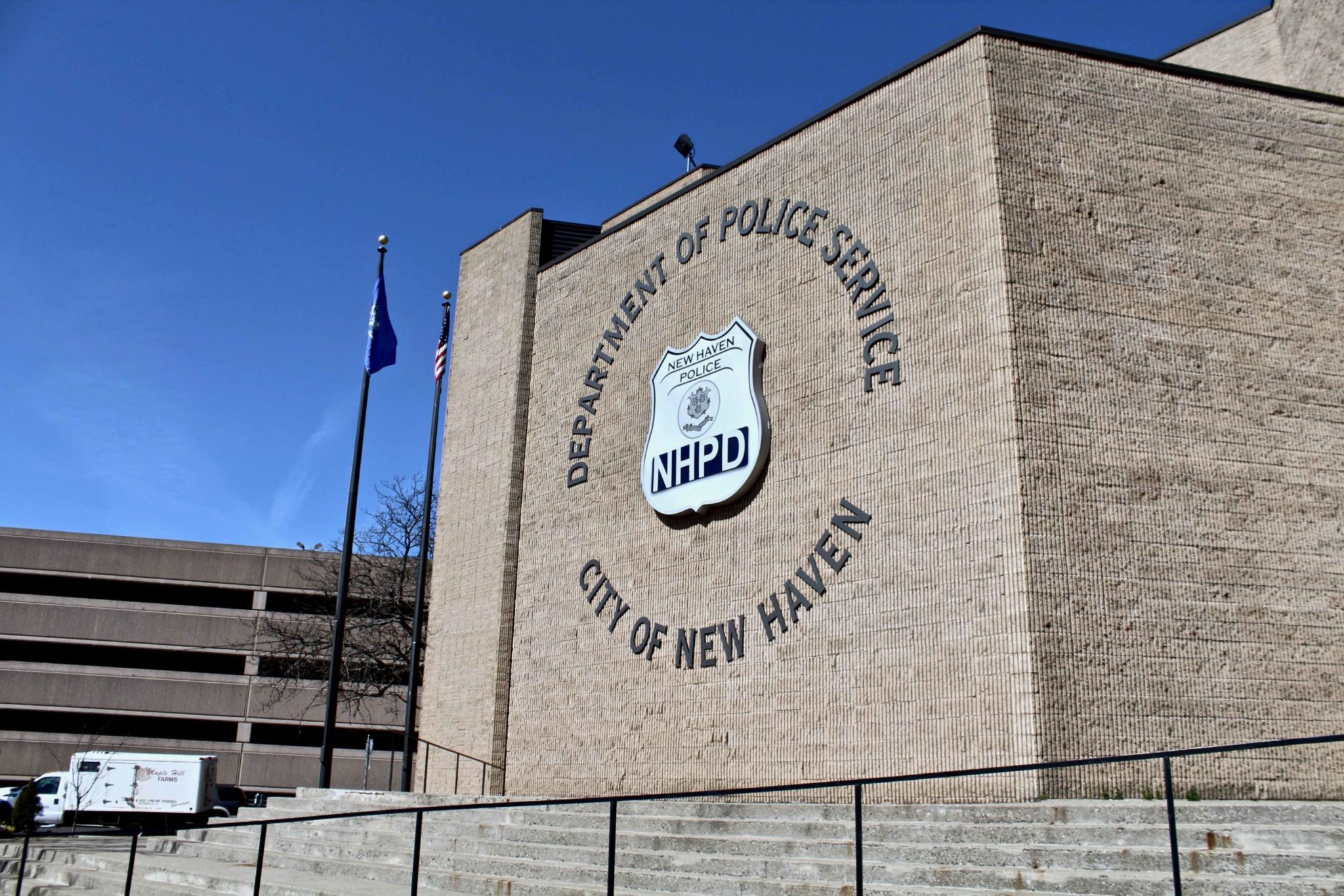
Adrian Kulesza
The New Haven Police Department rolled out a program last week, which distributes free clean needles and community health resources for individuals released from detention.
NHPD is the first police department in the state to launch such a program. At a press conference on Thursday, NHPD and local healthcare providers explained that the harm-reduction initiative was designed to keep recently incarcerated drug users safe until they were ready to seek long-term recovery. Forty-three officers on the force also underwent specialized training in harm reduction, suicide prevention and the administration of naloxone — a drug that can temporarily reverse opioid overdose.
“While many think that the primary responsibility of the police is to arrest and to enforce laws, for us in New Haven, our primary responsibility is the protection and preservation of life,” New Haven Chief of Police Otoniel Reyes said on Thursday. “We want to support every individual’s road to recovery.”
According to Lieutenant Nicholas Marcucio, after the department detains an individual suspected of substance abuse, he or she is are given a flyer with information about free recovery programs in New Haven. Additional literature on these programs are also available in all the cells at the station. When these individuals are discharged, they are offered the opportunity to take one of the harm-reduction kits with them. The kits also include sterile water, burners, cotton, a tourniquet and condoms.
Originally, the kits were also set to include glass crack pipes, which, like needles, can spread blood-borne infections when shared. But unlike needles, pipes were not included in a 2006 Connecticut law that excluded syringes from being classified as “drug paraphernalia,” said Robert Lawlor. Lawlor is the drug intelligence officer and public safety liaison for the state’s High Intensity Drug Trafficking Area program, which helped roll out the program.
Because of concerns related to pipes from the police department complicating legal cases involving them, Lawlor told the News that the city decided to pull the pipes from the kit after speaking with the state’s attorney.
Each bag has a unique identifier that tracks the efficacy of the program. The individual remains anonymous, but the identifier will allow the department to detect whether someone who received the kit went on to seek recovery resources through data shared with the Yale Syringe Services program.
“I’m here to tell you harm reduction works,” said Joanne Montgomery, who is in long-term recovery from opioid addiction and now works at an addiction treatment center in Norwalk. “Harm reduction does not promote drug use. Instead, it teaches safer use. Harm reduction aims to reduce stigma, so people like me can come out of the dark shadows and admit there’s a problem.”
Healthcare providers stressed that harm reduction was one of many ways to tackle substance abuse in Connecticut. This method is particularly valuable because it allows people to reach out for support at their own pace, they explained. The kits also include a phone number that, if called, would prompt an on-site assessment of the individual and a ride to a detox facility.
Other similar harm-reduction programs in Connecticut have seen some success. The Syringe Services Program offers an opportunity to exchange used needles for sterile ones to prevent HIV and Hepatitis C infections, and the Fentanyl Test Strip program distributes a strip that can detect the presence of fentanyl in drug samples prior to ingestion. According to the Connecticut Department of Public Health, syringe services programs, in conjunction with other HIV-prevention strategies, have led to an 80 percent reduction since the 1980s of HIV infection in individuals who inject drugs.
Lawlor said that the pilot program is intended to be permanent. It is set to be evaluated for efficacy on a three-month basis, he added.
Though Lawlor mentioned that the New Haven Police Department is the only police department in the state with a harm-reduction program, he said that the High Intensity Drug Trafficking Area program had already had discussions about potential programs with two other departments prior to the New Haven rollout, and that two additional departments had also reached out with interest. Lawlor also noted that Reyes has been “very supportive” of the pilot program since its inception.
Lawlor said that when he worked in the force, he had a “black-and-white” attitude when it came to drugs.
“As an officer, I knew nothing about addiction or what causes addiction or why people with a substance abuse disorder act the way they do,” he said. “I just never had education or training or knowledge of that,” he said.
1-800-563-4086 is the 24/7 treatment hotline from the state Department of Mental Health and Addiction Services.
Talia Soglin | talia.soglin@yale.edu
Meera Shoaib | meera.shoaib@yale.edu







